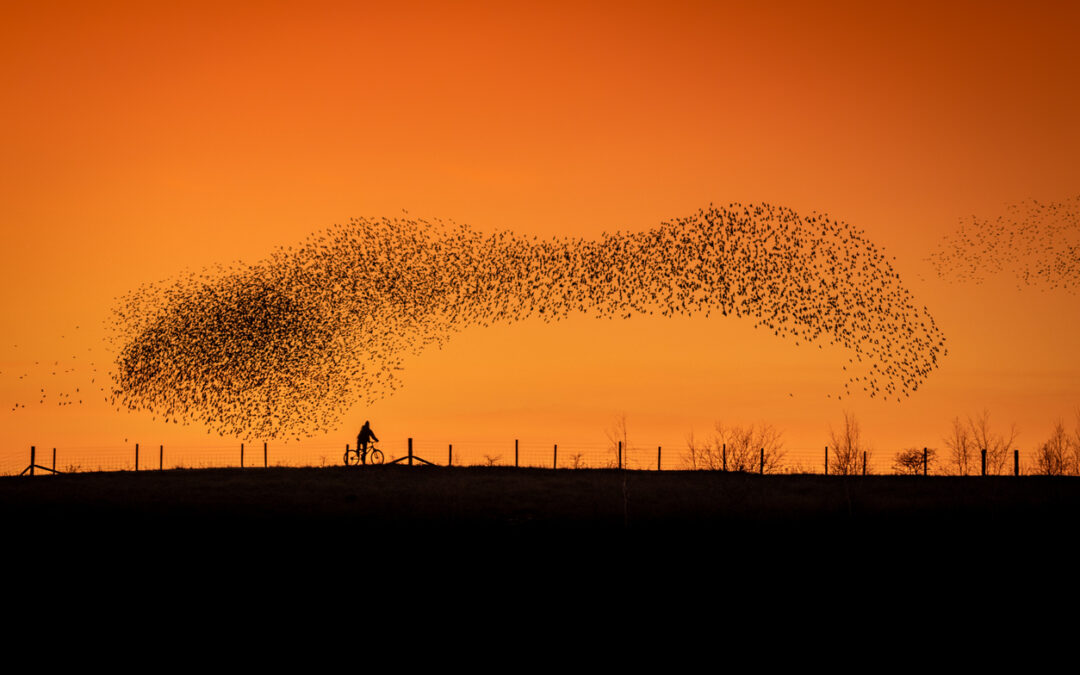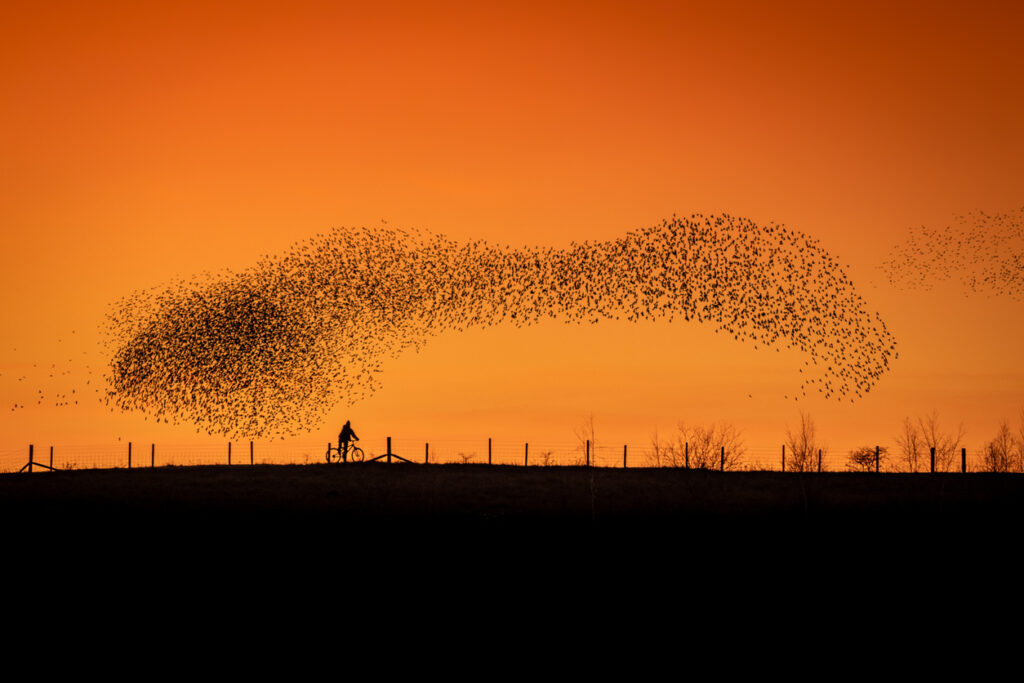
Murmuration
The Murmuration Theory of Politics

How we can learn to act together to achieve a better way of government.
I’ve always been a wildlife enthusiast and, like many people, have witnessed in real life a vast cloud of birds swirling about in the sky creating extraordinary, mesmerising shapes as they change direction, seemingly guided by a single, unknowable purpose. This is called a murmuration and in the UK it most commonly features starlings and is most commonly seen at sunset. You may wonder what on earth this has to do with politics but please bear with me.
Whilst studying a murmuration in my small rural home town I discovered something really interesting. I began to notice on my morning and evening dog walks that discrete groups of starlings would fly towards the specific place where the murmuration took place just before dusk, and in the morning would fly away from it. This huge group of birds was actually made up of numerous smaller subgroups.
The purpose of the murmuration is to gather in a huge flock prior to roosting for the night. They create a large swirling mass of birds because there is some protection from predators in behaving that way and then as if on some secret signal, they all drop down very quickly to the roosting trees. So in essence, what we have is a large number of different groups of birds coming together in a specific place, at a specific time and for a specific purpose for their mutual benefit.
It occurs to me that there is a lesson here for the way we conduct politics, especially on the centre-left, which suffers from what often looks like irreconcilable factions and splits. These never seem capable of coming together in one place, at one time for a specific or common purpose – especially at an election. Each group or faction, both within and between parties, spends a huge amount of time and energy differentiating themselves from everyone else, despite having very similar objectives.
A prime example is a common desire to beat the Conservatives yet these groups and parties are happy to split the progressive vote, which often guarantees they all get the one thing they don’t want; a conservative MP in a Conservative government. There are a number of reasons why this happens but primarily it is because each party or faction values its identity more than its policy aims and objectives. The more they lose elections the more and more frustrated they get with each other for splitting the vote, which then descends into a visceral hatred and a blank refusal to cooperate. They are often subconsciously (perhaps even deliberately?) blind to the number of policy objectives they actually share.
Most of the centre-left parties openly state they want Proportional Representation (PR) but have done nothing about it because of an innate delusion that they are the ‘chosen ones’ who will deliver ‘a better world’ just as soon as everyone sees that and votes them in. This party political narcissism is particularly true of Labour who, to be fair, have won elections in the not too distant past. I don’t say this to be unkind but in the current political climate, and especially under our First Past the Post (FPTP) voting system, that isn’t going to happen again. In order for PR to work it needs to be accepted as a given that cooperative forms of government will be a permanent feature of our democracy. Therefore, a major change of mental approach needs to happen.
The first thing these parties need to do is recognise that, in terms of 75% of what they want to achieve, they are all birds of the same political species. Beating the tories, introducing PR and a Green New Deal (GND) are all core objectives for Labour, Lib-Dem, Greens, SNP and Plaid Cymru. There are many more areas where their policy objectives will converge with a little tinkering and negotiation. All of these parties need to learn to politically murmurate, not just between themselves but also between the factions within the parties.
Again, Labour perhaps because it is the largest party, suffers from this more than the others. Their current splits and divisions are not only preventing them from winning elections but are also preventing them from being an effective opposition. This is incomprehensibly frustrating because the entire Labour movement was created and sustained on the principle of uniting around a common cause.
So how can this be resolved? It is perfectly reasonable for individuals and groups to have differing, passionately held views and identities. But what never seems to occur to them is that they could come together at election time, as a group of groups, to achieve their common goals. Instead, they see each other as enemies to be despised and defeated.
The trick is not to look for the things that divide you but the things that unite you. Another is to learn to let go of the arguments and battles you are never going to win. Lastly, it’s important to recognise that achieving 75% of what you want is a lot better than achieving nothing at all. There is no reason why all of these groups and factions cannot continue to exist after an event like an election so long as they never lose sight of their common objectives, win or lose.
To keep this all in focus we have to remind ourselves of the context in which this has become necessary; we have the worst, most destructive, undemocratic, mendacious, deceitful and appallingly incompetent government in our history. Its policies and style of government are, without exaggeration, killing us. They are destroying the fabric of our nation. They are destroying our international relations and trading, and have brought us to the point where our public services are incapable of keeping us properly healthy, educating ourselves, administering justice and maintaining our environment, let alone dealing with a pandemic or the climate crisis.
We have a common purpose and we can take the example of the starlings to put aside our differences, to act together at the right time and for the right reason; to make our lives better; to restore our democracy; to rebuild our institutions so that we can hold our heads high among the international community again. Not as vain conquerors but as a nation that is respected for how we conduct ourselves amongst ourselves and amongst them.
